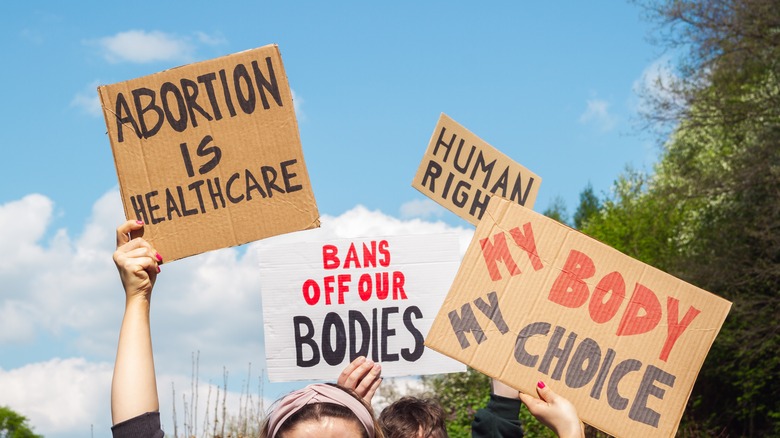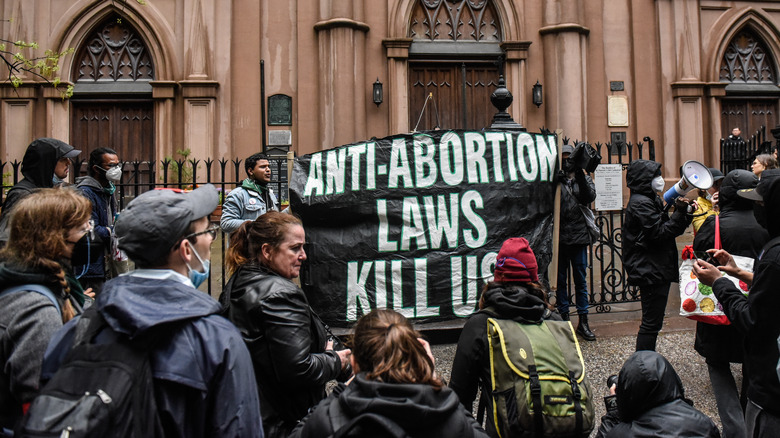How Pro-Choice Religious Groups Are Organizing To Help Women Get Abortions
There has always been a divide between pro-choice and pro-life activists, both in religious and nonreligious sectors. But when the Supreme Court overturned Roe v. Wade, many people, regardless of their original beliefs, began to change course. What was once protected under the Roe v. Wade ruling is now under scrutiny, with many states restricting abortion and others adding rules to how far along you can be in order to get one, per The Washington Post.
When it comes to the abortion debate, many people like to label it as a Republican versus Democrat issue. But according to Pew Research Center, it is neither. There are many Republicans who are pro-choice and many Democrats who are pro-life. But the key difference between the two is that the ones who do lean towards pro-life are often much more religious. Because of this, people often associate religious groups with being anti-abortion. But as more pro-choice religious groups come out of the shadows, what we thought we knew about them is changing.
Religious leaders are taking it upon themselves to help women in need
According to Pew Research Center, religious groups have different views when it comes to abortions. Catholics are split, with half being for legal abortions and the other half being against it. Orthodox Christians have similar views, although a bit more than half agree that abortions should be legal. The Jewish population is largely for abortion access, with 83% saying it should be legal in most cases, while Evangelical Protestants and Mormons largely lean toward pro-life stances.
But even with these differences, religious groups are coming together to help now that women no longer have the same access to abortions. According to Slate, a Jewish nonprofit organization in Washington, D.C. has given hundreds of thousands of dollars from their funding to abortion access while pastors in Ohio have taken it upon themselves to learn how to terminate pregnancies safely from their homes. Volunteers from all religious backgrounds have gone out to help and many religious leaders have begun to express their views on abortion access after years and years of silence. According to Healthline, new nonprofits have also been created, including The Religious Coalition for Reproductive Choice and Catholics for Choice, which aims to help people understand negative feelings they have about getting an abortion.

